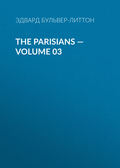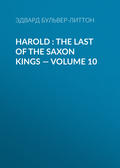
Эдвард Бульвер-Литтон
Zicci — Volume 02
"I give thee, Glyndon, I give thee no more the option of happy love and serene enjoyment. That hour is past, and fate has linked the hand that might have been thine own to mine. But I have ample gifts to bestow upon thee if thou wilt abandon the hope that gnaws thy heart, and the realization of which even I have not the power to foresee. Be thine ambition human, and I can gratify it to the full. Men desire four things in life,—love, wealth, fame, power. The first I cannot give thee,—no matter why; the rest are at my disposal. Select which of them thou wilt, and let us part in peace."
"Such are not the gifts I covet: I choose knowledge, which indeed, as the schoolman said, is power, and the loftiest; that knowledge must be thine own. For this, and for this alone, I surrendered the love of Isabel; this, and this alone, must be any recompense."
"I cannot gainsay thee, though I can warn. The desire to learn does not always contain the faculty to acquire. I can give thee, it is true, the teacher; the rest must depend on thee. Be wise in time, and take that which I can assure to thee."
"Answer me but these questions, and according to your answer I will decide. Is it in the power of man to attain intercourse with the beings of other worlds? Is it in the power of man to read the past and the future, and to insure life against the sword and against disease?"
"All this may be possible," answered Zicci evasively, "to the few. But for one who attains such secrets, millions may perish in the attempt."
"One question more. Thou—"
"Beware! Of myself, as I have said before, I render no account."
"Well, then, the stranger I have met this night—are his boasts to be believed? Is he in truth one of the chosen seers whom you allow to have mastered the mysteries I yearn to fathom?"
"Rash man," said Zicci, in a tone of compassion, "thy crisis is past, and thy choice made. I can only bid thee be bold and prosper. Yes, I resign thee to a master who has the power and the will to open to thee the gates of the awful world. Thy weal or woe are as nought in the eyes of his relentless wisdom. I would bid him spare thee, but he will heed me not. Mejnour, receive thy pupil!" Glyndon turned, and his heart beat when he perceived that the stranger, whose footsteps he had not heard on the pebbles, whose approach he had not beheld in the moonlight, was once more by his side.
Glyndon's eyes followed the receding form of the mysterious Corsican. He saw him enter the boat, and he then for the first time noticed that besides the rowers there was a female, who stood up as Zicci gained the boat. Even at this distance he recognized the once-adored form of Isabel. She waved her hand to him, and across the still and shining air came her voice, mournfully and sweetly in her native tongue, "Farewell, Clarence—farewell, farewell."
He strove to answer, but the voice touched a chord at his heart, and the words failed him. Isabel was then lost forever,—gone with this dread stranger,—darkness was round her lot. And he himself had decided her fate and his own! The boat bounded on, the soft waves flashed and sparkled beneath the oars, and it was along one sapphire track of moonlight that the frail vessel bore away the lovers. Farther and farther from his gaze sped the boat, till at last the speck, scarcely visible, touched the side of the ship that lay lifeless in the glorious bay. At that instant, as if by magic, up sprang with a glad murmur the playful and refreshing wind. And Glyndon turned to Mejnour, and broke the silence.
"Tell me,—if thou canst read the future,—tell me that her lot will be fair, and that her choice at least is wise."
"My pupil," answered Mejnour, in a voice the calmness of which well accorded with the chilling words, "thy first task must be to withdraw all thought, feeling, sympathy from others. The elementary stage of knowledge is to make self, and self alone, thy study and thy world. Thou hast decided thine own career; thou hast renounced love; thou hast rejected wealth, fame, and the vulgar pomps of power. What, then, are all mankind to thee? To perfect thy faculties and concentrate thy emotions is henceforth thy only aim."
"And will happiness be the end?"
"If happiness exist," answered Mejnour, "it must be centred in A Self to which all passion is unknown. But happiness is the last state of being, and as yet thou art on the threshold of the first!"
As Mejnour spoke, the distant vessel spread its sails to the wind, and moved slowly along the deep. Glyndon sighed, and the pupil and the master retraced their steps towards the city.
BOOK II
CHAPTER I
It was about a month after the date of Zicci's departure and Glyndon's introduction to Mejnour, when two Englishmen were walking arm-in-arm through the Toledo.
"I tell you," said one (who spoke warmly), "that if you have a particle of common-sense left in you, you will accompany me to England. This Mejnour is an impostor more dangerous—because more in earnest—than Zicci. After all, what do his promises amount to? You allow that nothing can be more equivocal. You say that he has left Naples, that he has selected a retreat more genial than the crowded thoroughfares of men to the studies in which he is to initiate you; and this retreat is among the haunts of the fiercest bandits of Italy,—haunts which Justice itself dare not penetrate; fitting hermitage for a sage! I tremble for you. What if this stranger, of whom nothing is known, be leagued with the robbers; and these lures for your credulity bait but the traps for your property,—perhaps your life? You might come off cheaply by a ransom of half your fortune; you smile indignantly well! put common- sense out of the question; take your own view of the matter. You are to undergo an ordeal which Mejnour himself does not profess to describe as a very tempting one. It may, or it may not, succeed; if it does not, you are menaced with the darkest evils; and if it does, you cannot be better off than the dull and joyless mystic whom you have taken for a master. Away with this folly! Enjoy youth while it is left to you. Return with me to England; forget these dreams. Enter your proper career; form affections more respectable than those which lured you a while to an Italian adventuress, and become a happy and distinguished man. This is the advice of sober friendship; yet the promises I hold out to you are fairer than those of Mejnour."
"Merton," said Glyndon, doggedly, "I cannot, if I would, yield to your wishes. A power that is above me urges me on; I cannot resist its fascination. I will proceed to the last in the strange career I have commenced. Think of me no more. Follow yourself the advice you give to me, and be happy."
"This is madness," said Merton, passionately, but with a tear in his eye; "your health is already failing; you are so changed I should scarcely know you: come, I have already had your name entered in my passport; in another hour I shall be gone, and you, boy that you are, will be left without a friend to the deceits of your own fancy and the machinations of this relentless mountebank."
"Enough," said Glyndon, coldly; "you cease to be an effective counsellor when you suffer your prejudices to be thus evident. I have already had ample proof," added the Englishman, and his pale cheek grew more pale, "of the power of this man,—if man he be, which I sometimes doubt; and, come life, come death, I will not shrink from the paths that allure me. Farewell, Merton: if we never meet again; if you hear amidst our old and cheerful haunts that Clarence Glyndon sleeps the last sleep by the shores of Naples, or amidst the Calabrian hills,—say to the friends of our youth, 'He died worthily, as thousands of martyr-students have died before him, in the pursuit of knowledge.'"
He wrung Merton's hand as he spoke, darted from his side, and disappeared amidst the crowd.
That day Merton left Naples; the next morning Glyndon also quitted the City of Delight, alone and on horseback. He bent his way into those picturesque but dangerous parts of the country which at that time were infested by banditti, and which few travellers dared to pass, even in broad daylight, without a strong escort. A road more lonely cannot well be conceived than that on which the hoofs of his steed, striking upon the fragments of rock that encumbered the neglected way, woke a dull and melancholy echo. Large tracts of waste land, varied by the rank and profuse foliage of the South, lay before him; occasionally a wild goat peeped down from some rocky crag, or the discordant cry of a bird of prey, startled in its sombre haunt, was heard above the hills. These were the only signs of life; not a human being was met, not a hut was visible. Wrapped in his own ardent and solemn thoughts, the young man continued his way, till the sun had spent its noonday heat, and a breeze that announced the approach of eve sprung up from the unseen ocean that lay far distant to his sight. It was then that a turn in the road brought before him one of those long, desolate, gloomy villages which are found in the interior of the Neapolitan dominions; and now he came upon a small chapel on one side of the road, with a gaudily painted image of the Virgin in the open shrine. Around this spot, which in the heart of a Christian land retained the vestige of the old idolatry (for just such were the chapels that in the Pagan age were dedicated to the demon-saints of mythology), gathered six or seven miserable and squalid wretches, whom the Curse of the Leper had cut off from mankind. They set up a shrill cry as they turned their ghastly visages towards the horseman; and, without stirring from the spot, stretched out their gaunt arms, and implored charity in the name of the Merciful Mother. Glyndon hastily threw them some small coins, and, turning away his face, clapped spurs to his horse, and relaxed not his speed till he entered the village. On either side the narrow and miry street, fierce and haggard forms—some leaning against the ruined walls of blackened huts, some seated at the threshold, some lying at full length in the mud—presented groups that at once invoked pity and aroused alarm; pity for their squalor,—alarm for the ferocity imprinted on their savage aspects. They gazed at him, grim and sullen, as he rode slowly up the rugged street; sometimes whispering significantly to each other, but without attempting to stop his way. Even the children hushed their babble, and ragged urchins, devouring him with sparkling eyes, muttered to their mothers, "We shall feast well to-morrow!" It was, indeed, one of those hamlets in which Law sets not its sober step, in which Violence and Murder house secure,—hamlets common then in the wilder parts of Italy, in which the peasant was but the gentler name for the robber.
Glyndon's heart somewhat failed him as he looked around, and the question he desired to ask died upon his lips. At length, from one of the dismal cabins emerged a form superior to the rest. Instead of the patched and ragged overall which made the only garment of the men he had hitherto seen, the dress of this person was characterized by all the trappings of Calabrian bravery. Upon his raven hair, the glossy curls of which made a notable contrast to the matted and elfin locks of the savages around, was placed a cloth cap with a gold tassel that hung down to his shoulder; his mustaches were trimmed with care, and a silk kerchief of gay lines was twisted round a well-shaped but sinewy throat; a short jacket of rough cloth was decorated with several rows of gilt filagree buttons; his nether garments fitted tight to his limbs, and were curiously braided; while in a broad, party-colored sash were placed four silver-hilted pistols; and the sheathed knife, usually worn by Italians of the lower order, was mounted in ivory elaborately carved. A small carbine of handsome workmanship was slung across his shoulder, and completed his costume. The man himself was of middle size, athletic, yet slender; with straight and regular features,—sunburnt, but not swarthy; and an expression of countenance which, though reckless and bold, had in it frankness rather than ferocity, and, if defying, was not altogether unprepossessing.
Glyndon, after eyeing this figure for some moments with great attention, checked his rein, and asked in the provincial patois, with which he was tolerably familiar, the way to the "Castle of the Mountain."
The man lifted his cap as he heard the question, and, approaching Glyndon, laid his hand upon the neck of the horse, and said in a low voice, "Then you are the cavalier whom our patron the signor expected. He bade me wait for you here, and lead you to the castle. And indeed, signor, it might have been unfortunate if I had neglected to obey the command." The man then, drawing a little aside, called out to the bystanders in a loud voice, "Ho, ho, my friends, pay henceforth and forever all respect to this worshipful cavalier. He is the accepted guest of our blessed patron of the Castle of the Mountain. Long life to him! May he, like his host, be safe by day and by night, in the hill and on the waste, against the dagger and the bullet, in limb and in life! Cursed be he who touches a hair of his head, or a baioccho in his pouch. Now and forever we will protect and honor him; for the law or against the law; with the faith, and to the death. Amen. Amen!"
"Amen!" responded in wild chorus a hundred voices, and the scattered and straggling groups pressed up the street, nearer and nearer to the horseman.
"And that he may be known," continued the Englishman's strange protector, "to the eye and to the ear, I place around him the white sash, and I give him the sacred watchword,—'Peace to the Brave.' Signor, when you wear this sash, the proudest in these parts will bare the head and bend the knee. Signor, when you utter this watchword, the bravest hearts will be bound to your bidding. Desire you safety, or ask you revenge; to gain a beauty, or to lose a foe, speak but the word, and we are yours, we are yours! Is it not so, comrades? "And again the hoarse voices shouted, "Amen, amen!"
"Now, signor," whispered the bravo, in good Italian, "if you have a few coins to spare, scatter them amongst the crowd, and let us be gone."
Glyndon, not displeased at the concluding sentence, emptied his purse in the street; and while, with mingled oaths, blessings, shrieks, and yells, men, women, and children scrambled for the money, the bravo, taking the rein of the horse, led it a few paces through the village at a brisk trot, and then turning up a narrow lane to the left, in a few minutes neither houses nor men were visible, and the mountains closed their path on either side. It was then that, releasing the bridle and slackening his pace, the guide turned his dark eyes on Glyndon with an arch expression, and said,—
"Your Excellency was not, perhaps, prepared for the hearty welcome we have given you."
"Why, in truth, I ought to have been prepared for it, since my friend, to whose house I am bound, did not disguise from me the character of the neighborhood. And your name, my friend, if I may call you so?"
"Oh, no ceremonies with me, Excellency. In the village I am generally called Maestro Paulo. I had a surname once, though a very equivocal one; and I have forgotten that since I retired from the world."
"And was it from disgust, from poverty, or from some some ebullition of passion which entailed punishment, that you betook yourself to the mountains?"
"Why, signor," said the bravo, with a gay laugh, "hermits of my class seldom love the confessional. However, I have no secrets while my step is in these defiles, my whistle in my pouch, and my carbine at my back." With that the robber, as if he loved permission to talk at his will, hemmed thrice, and began with much humor; though, as his tale proceeded, the memories it roused seemed to carry him further than he at first intended, and reckless and light-hearted ease gave way to that fierce and varied play of countenance and passion of gesture which characterize the emotions of his countrymen.
"I was born at Terracina,—a fair spot, is it not? My father was a learned monk, of high birth; my mother—Heaven rest her!—an innkeeper's pretty daughter. Of course there was no marriage in the case; and when I was born, the monk gravely declared my appearance to be miraculous. I was dedicated from my cradle to the altar; and my head was universally declared to be the orthodox shape for a cowl. As I grew up, the monk took great pains with my education, and I learned Latin and psalmody as soon as less miraculous infants learn crowing. Nor did the holy man's care stint itself to my interior accomplishments. Although vowed to poverty, he always contrived that my mother should have her pockets full; and between her pockets and mine there was soon established a clandestine communication; accordingly, at fourteen, I wore my cap on one side, stuck pistols in my belt, and assumed the swagger of a cavalier and a gallant. At that age my poor mother died; and about the same period, my father, having written a 'History of the Pontifical Bulls,' in forty volumes, and being, as I said, of high birth, obtained a cardinal's hat. From that time he thought fit to disown your humble servant. He bound me over to an honest notary at Naples, and gave me two hundred crowns by way of provision. Well, signor, I saw enough of the law to convince me that I should never be rogue enough to shine in the profession. So instead of spoiling parchment, I made love to the notary's daughter. My master discovered our innocent amusement, and turned me out of doors,—that was disagreeable. But my Ninetta loved me, and took care that I should not lie out in the streets with the lazzaroni. Little jade, I think I see her now, with her bare feet, and her finger to her lips, opening the door in the summer nights, and bidding me creep softly into the kitchen, where—praised be the saints!- -a flask and a manchet always awaited the hungry amoroso. At last, however, Ninetta grew cold. It is the way of the sex, signor. Her father found her an excellent marriage in the person of a withered picture-dealer. She took the spouse, and very properly clapped the door in the face of the lover. I was not disheartened, Excellency; no, not I. Women are plentiful while we are young. So, without a ducat in my pocket, or a crust for my teeth, I set out to seek my fortune on board of a Spanish merchantman. That was duller work than I expected: but luckily we were attacked by a pirate; half the crew were butchered, the rest captured. I was one of the last,—always in luck, you see, signor, monks' sons have a knack that way! The captain of the pirate took a fancy to me. 'Serve with us,' said he. 'Too happy,' said I. Behold me then a pirate. Oh jolly life! how I blest the old notary for turning me out of doors! What feasting! what fighting! what wooing! what quarreling! Sometimes we ran ashore and enjoyed ourselves like princes; sometimes we lay in a calm for days together, on the loveliest sea that man ever traversed. And then, if the breeze rose, and a sail came in sight, who so merry as we? I passed three years in that charming profession, and then, signor, I grew ambitious. I caballed against the captain; I wanted his post. One still night we struck the blow. The ship was like a log in the sea,—no land to be seen from the mast-head, the waves like glass, and the moon at its full. Up we rose,—thirty of us and more. Up we rose with a shout; we poured into the captain's cabin,—I at the head. The brave old boy had caught the alarm, and there he stood at the doorway, a pistol in each hand; and his one eye (he had only one) worse to meet than the pistols were.







